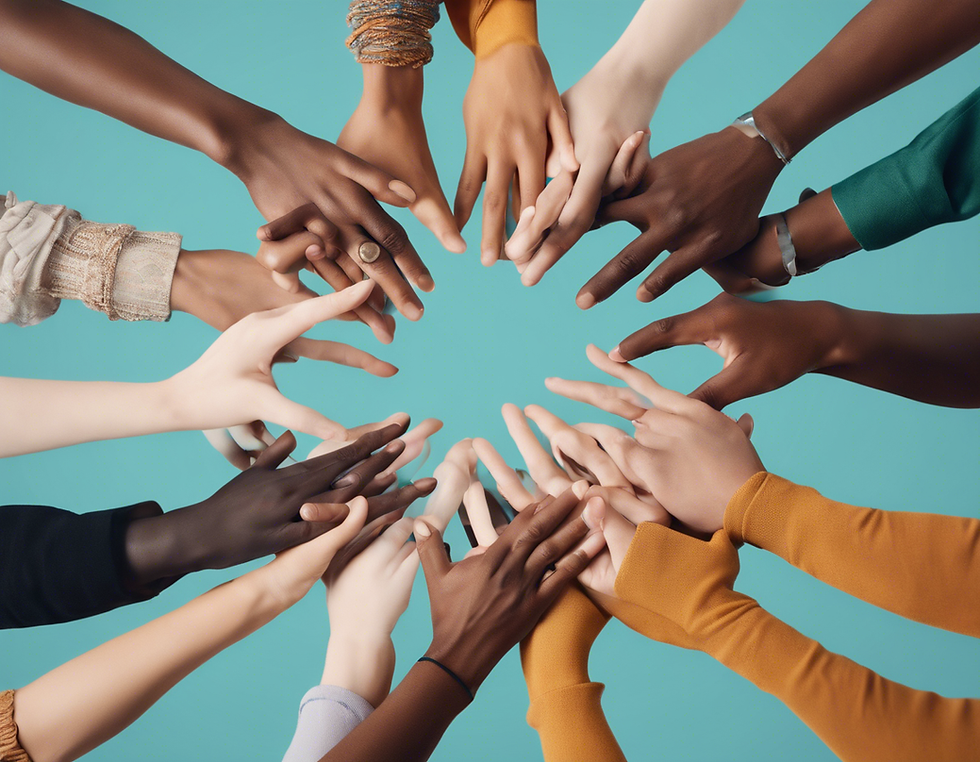Why Representation in Mental Health Professions Matter
- rebeccawilde
- Nov 24, 2024
- 3 min read
Updated: 6 days ago
Representation in mental health professions is vital, especially for underserved communities like the Gypsy, Roma, and Traveller+ populations. When individuals see therapists who share their backgrounds, experiences, or cultural values, they are more likely to feel understood and supported. The benefits of representation extend far beyond client relationships—it also inspires communities, fosters advocacy, and builds trust in systems that have historically excluded them.

The Power of Role Models and Representation
Role models within the mental health field can inspire change in communities. For Traveller+ individuals, seeing therapists, counsellors, and advocates who reflect their identities demonstrates that their voices matter and that they belong in spaces often dominated by non-Traveller+ individuals. This visibility can also challenge stereotypes about the community and promote a more nuanced understanding of their culture.
Other minority groups have successfully amplified their presence in mental health and other professions. For example, movements for increased representation of Black, Asian, and other minority ethnic therapists have shown that diverse practitioners bring unique insights into addressing cultural nuances. These movements have highlighted the value of culturally tailored mental health care, leading to more inclusive services and better outcomes for clients.
The Role of Community Leaders
Traveller+ therapists do more than provide counselling, they also act as community leaders and advocates. Their presence helps dismantle barriers of mistrust that often prevent Traveller+ individuals from seeking support. Historically, these communities have faced systemic discrimination and a lack of understanding from institutions, resulting in widespread reluctance to engage with services. Traveller+ therapists, as trusted insiders, can bridge this gap.
By sharing their expertise and lived experience, these professionals can educate non-Traveller+ practitioners about the cultural sensitivities required to serve Traveller+ clients effectively. This collaboration strengthens the overall quality of mental health services.
Celebrating Unique Skills and Knowledge
Traveller+ professionals bring unique skills to the table. Their understanding of their community’s values, traditions, and challenges allows them to connect with clients on a deeper level. For example, they may understand the significance of family roles, the impact of discrimination on mental health, or the cultural practices that shape Traveller+ identities. These insights can be invaluable in providing effective, empathetic care.
It’s time to celebrate and elevate Traveller+ professionals for their contributions. Their voices are crucial not only in mental health care but also in broader advocacy for equality and inclusion.
Learning from Other Movements
The increase in representation among other marginalized groups offers a blueprint for the Traveller+ community. For instance:
LGBTQ+ mental health advocates have successfully pushed for inclusive services that recognise the unique challenges faced by their communities.
Indigenous therapists in countries like Canada and Australia have emphasised the importance of culturally relevant practices, such as incorporating traditional healing methods into therapy.
These successes demonstrate the transformative potential of representation. Now, it’s time for the Traveller+ community to experience similar recognition and progress.
Building the Future of Traveller+ Mental Health Advocacy
The Gypsy, Roma and Traveller+ Therapists Network aims to address this gap by supporting mental health professionals. By creating a space for connection, advocacy, and professional development, the network highlights the importance of Traveller+ led initiatives in improving mental health outcomes.
Representation matters because it breaks cycles of exclusion, fosters trust, and empowers communities to take charge of their narratives. It’s not just about increasing numbers - it’s about creating a system where everyone feels seen, valued, and supported.



ความคิดเห็น